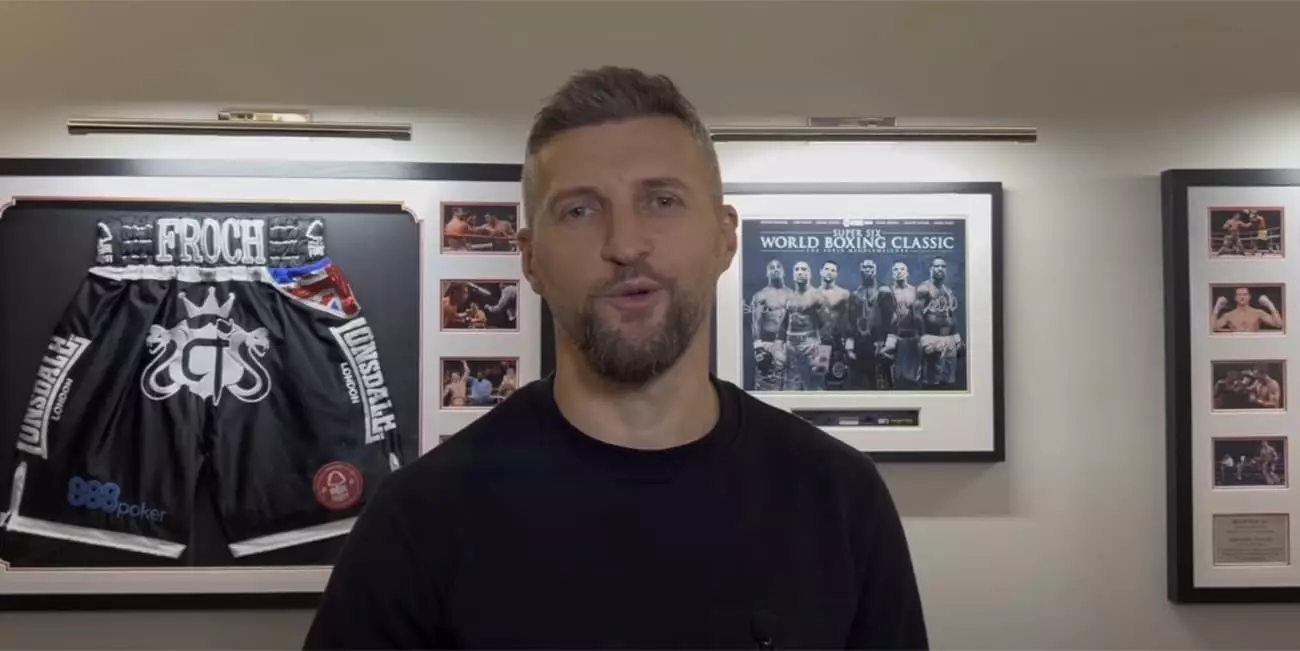Recently, the boxing community was abuzz as former super middleweight champion Carl Froch, an inductee into the Hall of Fame, made headlines with his fiery words regarding influencer-turned-boxer Jake Paul. At 47, Froch remains an imposing figure, ready to shatter the daydreams of YouTube sensations, declaring he’d return to the ring to face Paul, claiming he would “knock his teeth down the back of his throat.” Such a statement emanates not just from confidence but an indignant frustration aimed at the inflated personas within the boxing realm, particularly when they lack genuine fighting grit.
Froch has a point; taking a fight at this stage would be more about preserving boxing’s integrity than securing his own legacy. The contrast between their backgrounds sets the stage for a battle of legitimacy versus spectacle. On one side stands Froch, a celebrated boxer dedicated to the sport’s ethos, and on the other, Paul, whose rise has sparked a debate on whether social media influencers have a rightful place within the boxing ring.
Fear or Smokescreen?
Despite Paul previously calling out Froch, it seems the YouTube star has since backtracked, an apparent acknowledgment that stepping into the ring with a fighter of Froch’s pedigree would likely result in embarrassment. Froch’s commentary reveals a harsh truth: Paul may play the role of the tough competitor, yet in the eyes of real boxers, he fundamentally lacks the chops or courage to challenge seasoned fighters. His upcoming match against Julio Cesar Chavez Jr., a veteran whose prime has long since passed, shows that Paul is navigating a route littered with easy pickings, rather than genuine challengers.
Froch’s assessment of Paul as a “little b***h” resonates deeply in the boxing community, amplifying the division between traditional boxing fans and newcomers drawn by social media fame. The assertion that Paul avoids mentioning Froch signifies a protective instinct; after all, in a sport where reputation is everything, facing a champion like Froch could destroy any semblance of credibility Paul has fought tirelessly to maintain.
Insights into Market Dynamics
Taking a step back, the interest from fans in a Froch-Paul bout underscores an important concept: while boxing purists may deride the nature of this proposed pairing, the financial incentives are undeniable. Paul is a “money-making machine,” as Froch indicates, capable of drawing attention and revenue that many traditional fighters could only dream of. Yet, there remains an unsettling foundation of truth in Froch’s statement that Paul will “never, ever have the respect of the boxing community.” Respect in this sport is earned through grit, sacrifices, and skill – qualities that, thus far, seem veiled beneath Paul’s influencer façade.
In the end, a genuine bout between Carl Froch and Jake Paul carries enough clout to entice audiences, yet the authentic spirit of boxing appears compromised. As Froch continues to dismiss Paul’s efforts to make an everlasting mark in the sport, one cannot help but wonder if the boxing community must recalibrate. With an increasing blend of internet fame and conventional boxing, the sport teeters on the brink of an identity crisis, raising the pressing question: what defines a real fighter in the era of influencers?

